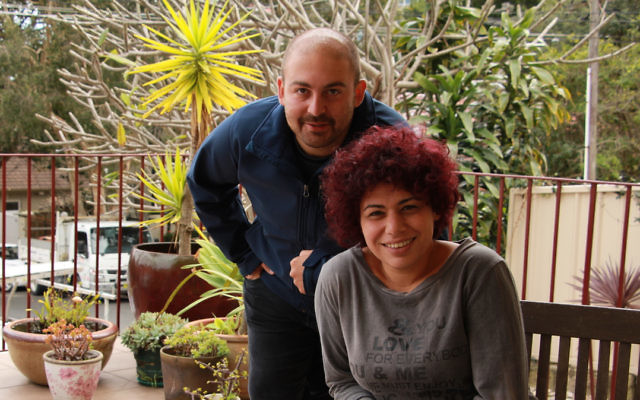Bouncing back with Beit Halochem
The road to physical recovery can be long for seriously injured Israeli soldiers and survivors of terror attacks, but the journey back to mental health is often longer. That’s where the Zahal Disabled Veterans Organisation (ZDVO) comes in.
THE road to physical recovery can be long for seriously injured Israeli soldiers and survivors of terror attacks, but the journey back to mental health is often longer – in some cases life long.
That’s where the Zahal Disabled Veterans Organisation (ZDVO) and its four Beit Halochem rehabilitation centres in Israel play a crucial role, providing ongoing support, treatment and social and recreational opportunities to more than 51,000 Israelis, for as long as they require it.
Ohad Roisblatt and Shiri Mirvis – who arrived on our shores on August 24 for a two-week speaking tour of Sydney and Melbourne as guests of ZVDO Beit Halochem Australia – are just two.
Mirvis, 35, was hospitalised for 16 days in 2003 after suffering burns and shrapnel wounds during a -terrorist attack at Mike’s Place bar in Tel Aviv, which killed three civilians and injured 50.
Operations eventually resolved her physical injuries, but post-traumatic stress disorder (PTSD) remained – a condition Mirvis describes as “a transparent injury because you can’t see it from the outside”.
“For nine years I locked myself in my apartment and only went out for work,” Mirvis said. “It was only when my dog died four years ago that I realised something was really wrong, so I joined Beit Halochem.”
Despite being afraid of heights, Mirvis joined a rock climbing support group at the Tel Aviv branch, and more recently a surfing class.
“I love it and the best thing is we have a group to go to where everyone has been through the same thing.
“With PTSD, so many things are in your mind at once, but when you are rock climbing, you don’t think about anything except your next step.”
First Lieutenant Roisblatt, 24, was badly wounded during Operation Protective Edge in 2014 when an -anti-tank missile struck his armoured vehicle, killing seven soldiers.
After a six-month stay in hospital, he joined Haifa Beit Halochem and began playing wheelchair basketball, tennis and pistol shooting.
Remarkably, he rejoined the army for one more year in a training role at the prestigious Haifa Military Academy and, following further surgery, can walk again.
“Beit Halochem is like a big country club with so many activities to choose from – if you want to do something there, you just ask,” he said.
“Above all, it’s a place where we can meet and get support. I think that gives people hope – you learn how to live your life with your injury.”
ZVDO Beit Halochem Australia executive director Evie Smith said, “It’s really important for us to have representatives from Beit Halochem, like Ohad and Shiri, in Australia because it makes it real.”
They both visited four schools and three shuls while in Sydney.
Roisblatt was guest speaker at the screening of the Israeli film documentary Tiyul at the Entertainment Quarter, Moore Park on September 1. He is also the guest speaker at a showing of the film at Beth Weizmann in Melbourne on September 3 (8pm).
SHANE DESIATNIK


comments